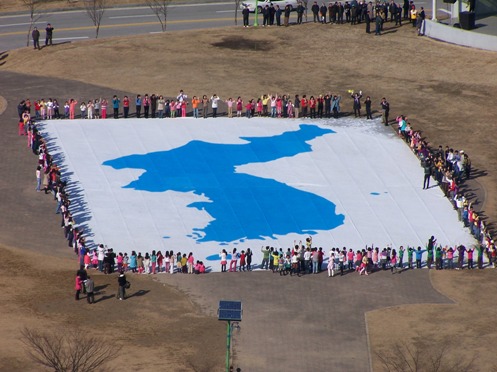
The recent détente in relations between north and south Korea — and America — has got many people asking what a unified Korea would look like?
The western viewpoint usually assumes a North Korean collapse, and therefore what is termed the “Germany model”, whereby the Republic of Korea would incorporate the Democratic People’s Republic of Korea into itself as one entity.
While this option ignores the vastly different economies and GDPs of the two countries, it also ignores another important fact — North Korean hasn’t collapsed, and its views on reunification of the Korean peninsula are very different.
Again, in the West we assume that because of the Korean War the North’s idea is to unite the peninsula under communism — probably by war — but in fact, in official policy at least, this has not been the case since as far back as the early 1970s.
So, what is North Korea’s policy on reunification? In 1980 President Kim Il Sung set the policy to create a neutral, federal republic, where both sides would keep their political systems, and governments, but have a federal parliament and government. And the name of this unified country? The Democratic Confederal Republic of Koryo (DCRK) — Koryo is the traditional name of Korea.
The Democratic part was later dropped from the name, and whilst the Confederal Republic of Koryo (CRK) has not gained much traction south of the border, many in the South do favour something resembling a two-state, or federal solution, with Lee Myung-Bak suggesting a Korean Economic Community, which would have involved certain joint-areas, whilst both states kept their own sovereignty.
Also, from the late 1990s the South has followed a “Sunshine Policy” which promoted increased cooperation with the view toward unification under a federal system of two autonomous governments, before finally creating one
country under one government. And in 2000 the leaders of North and South actually did meet together.
Not only that but cooperation in the form of the Mount Kumgang tourist region, which allowed South Koreans to visit the North, and the Kaesong industrial region, which gave businesses from the South the opportunity to invest in the North, were concrete attempts at real cooperation on the road to unification. However, issues were to plague this policy and the joint projects — from the shooting of a South Korean tourist to a certain “Axis of Evil” speech.
It is hard to say what the future might bring now, but at least with the upcoming summits, the current positive attitudes mean we can contemplate, from a Korean point of view, what reunification might look like, rather than what a nuclear war would look like.
